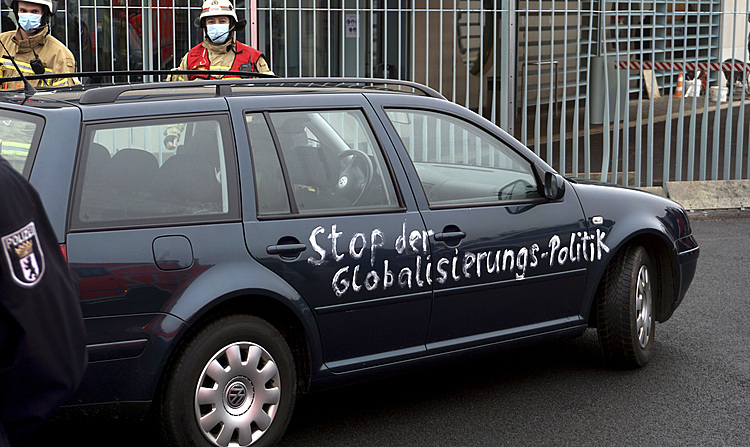Cuban-American millennials anticipate role in evolving Cuba
MIAMI (AP) — When 25-year-old illustrator Michelle Alfonso traveled to Cuba this year, she became the first in her family to go back to their ancestral homeland in more than a half-century — and it made her feel "whole again."
Alfonso, a New Yorker, says more Cuban-Americans should make the trip, especially now that the nation's longtime leader and the nemesis of many exiles, Fidel Castro, has died. She is part of a shift among many younger Cuban-Americans toward favoring engagement with the Communist-led island.
"I had grown up with this mysterious Cuban culture, and now, my whole life made sense," she said.
However, she said she doesn't "necessarily feel entitled to choose their future," putting her at odds with many Cuban-American millennials in Miami. The city's Cuban-American community is the center of hard-line sentiment against the Castro government, now led by Fidel's brother Raul Castro.
Take Isabella Prio, 20 and a junior at Boston College, who was born in Miami. She fully expects to return to Cuba someday and help shape the island's future, though she's never been to the country where her grandfather was once president and refuses to visit until it's a democracy. Castro's death at age 90 could bring changes that would make that possible, she said.
"It's a new chapter for us," Prio said. "It's definitely in the hands of the young people to take it over. We just have to be careful about how we go about it."
A dialogue with the U.S. had begun under President Barack Obama, who visited Cuba in March. But the future of diplomacy is uncertain under President-elect Donald Trump, who has indicated he may roll back some of the warming of ties.
Guillermo Grenier, a professor of sociology at Florida International in Miami, said attitudes are changing among youth eager to engage somehow with the island.
However, "how younger Cuban-Americans feel about Fidel Castro dying is kind of independent" of that interest, said Grenier, a lead investigator of the FIU Cuba Poll, an annual poll of Cuban-Americans co-sponsored by the Cuban Research Institute.
The most recent Cuba Poll was taken in August. It showed that Cuban-Americans ages 18 to 39 are disenchanted with the embargo, desire expanded business opportunities and favor the establishment of diplomatic relations between the two countries.
"There's been a shift of millennial Cuban-Americans, who are more open to President Obama's policies," says Cherie Cancio, 29, who was born in Miami and runs tours through a nonprofit called CubaOne to the island for young Cuban-Americans eager to explore their heritage.
Cancio's father reached Florida on the Mariel Boatlift in the 1980s.
She admits that the children of exiles grapple with wanting to learn about their heritage while being respectful of their parents' struggles. Many millennials want to go to Cuba but are hesitant to do so out of respect for their parents' position that the Castro regime must relinquish power.
That's why she believes in educating Cuban-Americans, while building bridges with folks in Cuba.
Still, Cancio doesn't believe that she, or the Miami-born children of exiles, has a role to play in reshaping Cuba.
"I have the freedom here to support whatever policies I want, she said. "I don't know I should have that freedom in another country, even if my father was born there."
Javier Gonzalez, a 21-year-old University of Miami junior, feels that Cuba is his birthright. His father came from Cuba and hasn't returned. Gonzalez also hasn't visited.
"A free Cuba or nothing," said Gonzalez, who is majoring in political science, economics and aquaculture.
Gonzalez attended Belen Jesuit Preparatory School in Miami — a private school that was once in Havana, only to be seized after Castro took power and expelled from the island.
Castro himself was a 1944 graduate of the school. Gonzalez says many of his teachers knew Castro or studied with him, and the exile experience permeated daily high school life, as it did for him at home.
Each day while walking to his Latin American studies class, Gonzalez would pass the wall of martyrs, a photographic journey of all the alumni who died fighting "for a higher cause," including attempting to oust Castro. Many were political prisoners under the Castro regime.
Gonzalez thinks of Cuba as his home, and someday, of going to what he calls "paradise lost."
Castro's death "isn't equivalent to liberty, but it's a step toward liberty," said Gonzalez.
When news of Castro's death broke, he texted Prio, his friend. They and their high school friends who were home for Thanksgiving break knew where to meet: Cafe Versailles in Little Havana, with its signs that say "La Casa del Exilio," or, "house of the exiles."
Prio, who has friends at her school in Boston who questioned her jubilation over Castro's death, tried to explain her feelings.
"He's not a human being, he's a monster," she said. "It's perfectly acceptable to celebrate his death."
Prio's grandfather, Carlos Prio Socarras, was president of Cuba from 1948 until 1952, when Fulgencio Batista organized a coup and overthrew the government. Socarras fled the country and backed Castro financially; it was the worst decision of his life, he later said.
Like Gonzalez, Prio believes she will someday go to Cuba and hopes to play a part in its rebuilding.
Said Gonzales: "it's not celebrating death, it's celebrating the life that could be."











